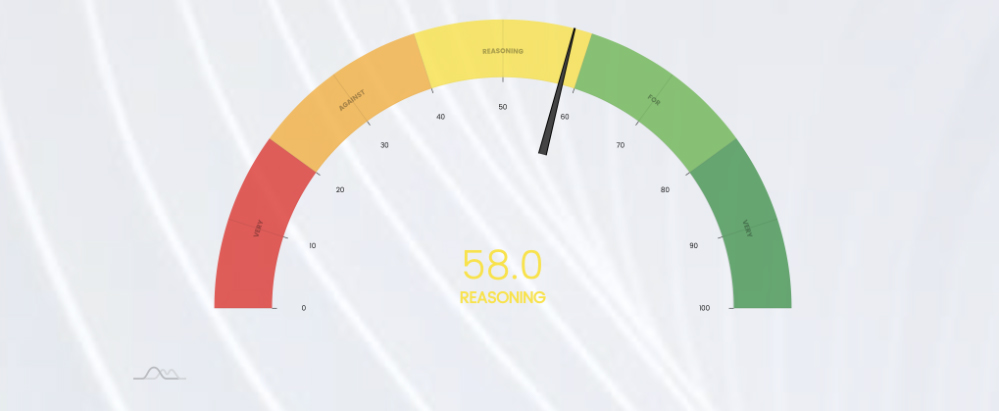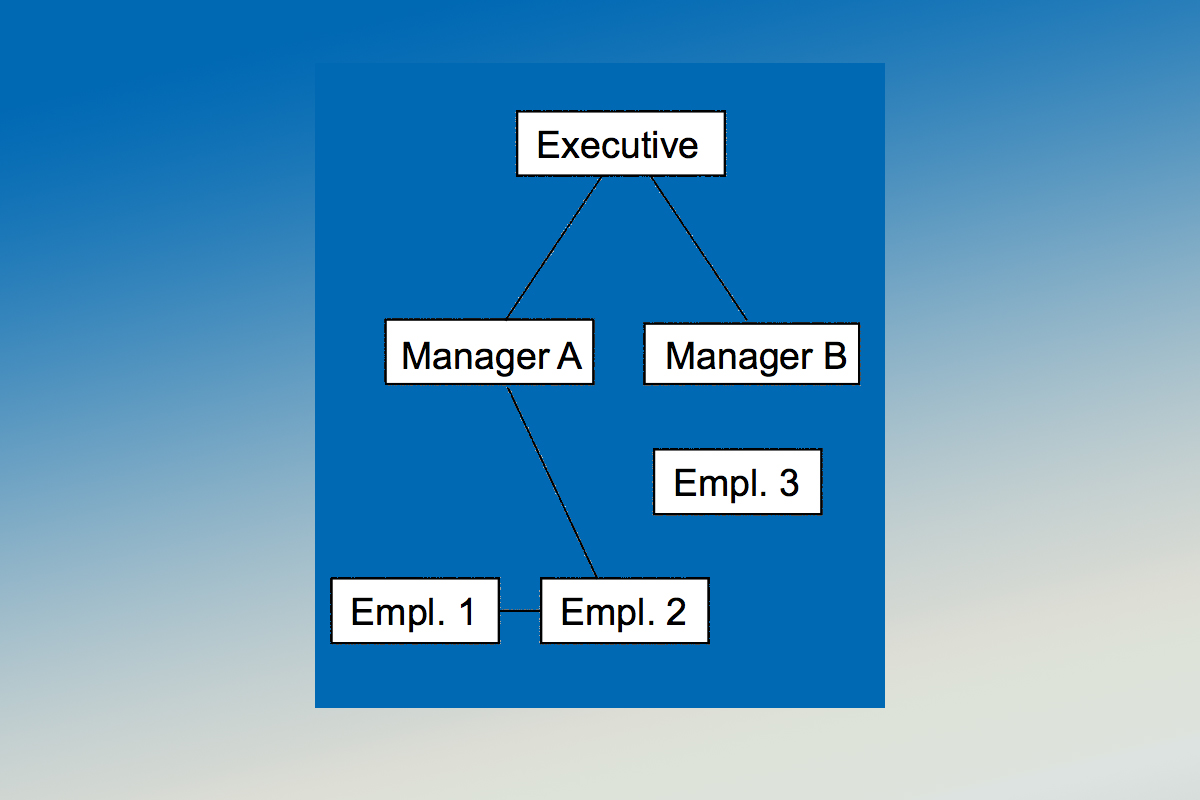
Mission
To use social network, motivation, and decision science to positively impact individuals, groups, and organizations.

What's new?
Our Lab's Live Decision Making Calculators
The Lab recently launched the Decision Making Calculator to help individuals and groups make important decisions in their lives.
It's free and open for public use, now with thousands of users. Click here to learn more or to use now.
Recent Peer-Reviewed Publications and Conference Acceptances:
Westaby, J.D., Rosemarino, N.M., & Elliot, A.J. (2025). How Behavioral Reasoning May Further Explain the Belief-to-Behavior Connection: Exploring the Role of Primary Reasons, Counter Reasons, and Comparative Reasoning Facets. Psychological Inquiry, 36 (1), 67-74. DOI: 10.1080/1047840X.2025.2482353.
This is our new paper, published in Psychological Inquiry. It’s a major conceptual extension of Westaby’s (2005) original behavioral reasoning theory. A multifaceted behavioral reasoning theory approach can show how people not only use their primary reasoning (primary pro reasons and primary con reasons), but also how they use their counterarguments to correct and calibrate their decisions. It also demonstrates how individuals use comparative reasoning in their attitude and decision formation. Lastly, it uniquely illustrates how individuals and groups use several types of recursive, rationalization, and post-decision processes to bolster their decisions and behavioral commitments in both positive and negative ways. This framework goes beyond traditional behavioral intention theories, such as the theory of planned behavior, by proposing new pathways to better predict intentions and behavior in social, organizational, health, and consumer behavior contexts. Click the following to download the PDF: Westaby, Rosemarino, & Elliot, 2025
Expanding Behavioral Reasoning Theory (BRT) to Account for Depth-of-Processing Concepts: Predicting Important Personal Decisions and Subsequent Satisfaction
Westaby, J.D. & Rosemarino, N.M. (2024)
Society for Judgement and Decision Making, New York, U.S.A.
Abstract:
Multifaceted behavioral reasoning theory (MBRT) was tested. This included not only original primary reasoning, but also new counter argument reasoning and meta comparative reasoning pathways to decision formation. Results indicated that prospective primary pro and con reasoning predicted comparative reasoning (i.e., perceiving one set of reasons as more influential in the decision process). Behavioral reasoning components predicted intentions over and above past theories. Counter argument reasons predicted theoretical mediators, supporting depth-of-processing effects. Further, comparative reasoning interacted with positive intentions to bolster decision satisfaction. Weighted reasoning more strongly predicted intentions than heuristic reasoning, illustrating serious limits in simple pro-con listing approaches. Adaptive decision models were integrated to explain various decision-making pathways.
Integrating Behavioral Reasoning Theory and Dynamic Network Theory to Predict Group Decisions: A Multi-level Analysis of Observable Discussions
Mah, E., & Westaby, J.D. (2024)
Society for Judgement and Decision Making, New York, U.S.A.
Abstract:
This paper integrates dynamic network theory and behavioral reasoning theory to understand observable group decision making. The framework explains how initial individual reasoning from a focal actor sets the stage for their contributions into group decision-making discussions. Then, observable reasoning from the focal actor in conjunction with observable support vs. resistance from actors in the network (i.e., alters) is then expected to impact final decisions. Results from the multi-group study highlight the predictive advantage of the network reasoning framework over traditional models. The framework also uniquely allows for the network visualization of group reasoning and support.
Dynamic network theory and the network motivation and resistance toward important life goals: The effects on goal progress, life satisfaction, and life distress
Westaby, J.D. & Rosemarino, N.M. (2024)
International Network for Social Network Analysis Conference (Scotland)
Abstract:
Social network analysis has been unsurpassed in its technological capacity to examine the interconnected nature of complex human relations. However, much less research has examined exactly how such relationships help (or hinder) the pursuit of focal actor’s important life goal pursuits. Although the original dynamic network theory (Westaby, 2012) has been groundbreaking in its initial explanation of network motivation toward goals, network resistance, and constructive reactance at resolving interpersonal conflicts with goal pursuits (Wang et al., 2023; Westaby et al., 2014), it has not articulated more precise mediation mechanisms as it relates to goal progress, life satisfaction, and life distress. In this study, we articulate how both network motivation (combining multiplex independent goal striving, interdependent system supporting, and goal feedback) and network resistance (combining multiplex independent goal preventing, interdependent supportive resistance, and system negation) are expected to have direct positive and negative effects on goal progress, respectively. Goal progress, in turn, is predicted to have positive effects on life satisfaction and negative effects on life distress, consistent with past research in psychological science. However, going beyond past individually focused research, network motivation in the focal actor’s network (e.g., from the self, significant other, friends, family, coworkers, and neighbors) is expected to have direct effects on focal actor life satisfaction over and above the focal actor’s own goal progress, illustrating the powerful role of network goal forces on individuals’ life satisfaction. Moreover, network resistance is expected to have direct negative effects on life distress over and above that explained by the actor’s own goal progress, illustrating how the totality of multiplex resistance forces, for the first time, can also inhibit psychological well-being, even when progress on important life goals is substantial. Empirical results from a recent investigation provided strong support for the mediation pathways and also demonstrated which actors were most instrumental on motivational and resistance forces. This line of research is particularly helpful in demonstrating how the rich sets of multiplex network linkages involved in human goal pursuit combine to parsimoniously explain important outcomes in complex human systems, thereby representing a potentially fruitful extension of social network analysis into the domain of human goal pursuit and system performance. This network goal analysis approach has implications for theory and research across the social, organizational, and network sciences.
Other Recent Publications
Wang, W., Stark, T., Westaby, J. D., Parr, A. K., & Newman, D. A. (2023). Social network analysis in psychology: Recent breakthroughs in methods and theories. In H. Cooper, M. N. Coutanche, L. M. McMullen, A. T. Panter, D. Rindskopf, & K. J. Sher (Eds.), APA Handbook of Research Methods in Psychology: Data Analysis and Research (pp. 501–537). American Psychological Association. https://doi.org/10.1037/0000320-023
Networks, Motivation, and Decision-Making
The lab combines social network analysis, motivation, and decision-making approaches to more fully explain how complex systems wield their power on important targets: goals, important decisions, specific behaviors, performance, climates, and system well-being. Grounded in dynamic network theory (DNT), network goal analysis (NGA) aims to portray these system dynamics at individual, group, organizational, or international levels, including those with conflict. NGA can also be used with other theoretical approaches, not just DNT, whenever social networks and goals (or target behaviors) are the focus. At the micro level, we also use behavioral reasoning theory (BRT) to examine how people's reasoning and counter-argument processes within the network help trigger motivated goal striving and behavior at the individual levels. Utilizing both DNT and BRT together is presumed to provide a rich, yet highly operational understanding of system behavior with direct implications for strategic change to improve system functioning. For researchers interested in applying BRT and NGA methodological surveys and computer visualizations, click here.
How are networks connected to motivation and decision-making?
Our approach inserts goal nodes into social networks to provide new insights about system functioning (Westaby and colleagues). Goals nodes are inherently motivational and can represent many important things, such as goals, missions, objectives, important decisions, intentions, wishes, needs, reasons, dreams, or target behaviors. Thus, inserting goal nodes into network structures has the capacity to help explain system functioning across diverse human experiences and topical areas.

Comparing Approaches
Network goal analyis (NGA) examines how social networks pivot around important goals with theoretically determined motivational linkages. In contrast, traditional social network analysis (SNA) focuses on social structural linkages without explict links to goal nodes. However, the approaches are complementary, depending on the scientific or practice question.
Break it down and build it back up
The Lab's surveys, computer visualizations, and reports allow each sub-network to be examined separately to better understand complex systems. It breaks down the complexity into meaningful chunks to maximize meaning and understanding. We also combine the concepts to provide overall system-level summaries of the networks, such as their positive focus ratio and network affirmation ratio. Our decision tools also provide feedback as to how people may be leaning in their decisions, based upon specific reasoning, counter-arguments, confidence, and information search.
Collaborating on New Research
Researchers engaged in rigorous projects examining important target goals, decisions, behaviors, or general life or work networks can contact us to inquire about using our decision-making calculators and/or network goal surveys and computer visualizations.
Recommended Reading
Originating behavioral reasoning theory publication in Organizational Behavior and Human Decision Processes:
Westaby (2005). Behavioral reasoning theory (i.e., founding article in OBHDP)
Recent behavioral reasoning theory publication:
Winner, McGregor Best Paper Award
General paper on dynamic network theory in American Psychologist: Dynamic network theory (Westaby, Pfaff, & Redding, 2014)
Recent network goal analysis (NGA) publication: Network goal analysis paper (Westaby & Parr, 2020)
Recent APA Handbook of Research Methods in Psychology:
Wang, W., Stark, T., Westaby, J. D., Parr, A. K., & Newman, D. A. (2023). Social network analysis in psychology: Recent breakthroughs in methods and theories. In H. Cooper, M. N. Coutanche, L. M. McMullen, A. T. Panter, D. Rindskopf, & K. J. Sher (Eds.), APA handbook of research methods in psychology: Data analysis and research publication (pp. 501–537). American Psychological
Association. https://doi.org/10.1037/0000320-023
Click here for more publications: Research